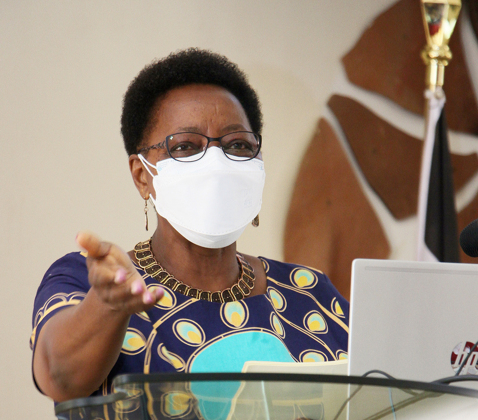STATEMENT ON OBSERVANCE OF THE INTERNATIONAL DAY OF PERSONS WITH DISABILITIES
The National Gender and Equality Commission (NGEC) joins Persons with Disabilities (PWDs) and the world at large in observing the International Day of Persons with Disabilities (IDPWD). The annual observance of the IDPWD was proclaimed in 1992 by United Nations General Assembly under Resolution 47/3. The day seeks to promote the full and equal participation of PWDs and urge the Member States to take action for the inclusion of PWDs in all aspects of society and development. The theme for 2021 IDPWD is “Leadership and participation of persons with disabilities toward an inclusive, accessible and sustainable post-COVID-19 world.”
Over 1 billion people, or approximately 15% of the world’s population, have some form of disability[1]. In Kenya, it is estimated that 2.2% (0.9 million people) live with some form of disability (Kenya Population and Housing Census, 2019). Persons with Disabilities are among the most vulnerable populations in Kenya. According to the 2021 report by World Bank, Persons with Disabilities are more likely to experience adverse socioeconomic outcomes such as less education, poorer health status, lower levels of employment, and higher poverty rates. The COVID-19 pandemic and other calamities such as war, conflicts, climatic shocks, have deepened the existing inequalities and increased vulnerabilities among PWDs. More importantly is that women, children, older persons with disabilities, those living in large households with minors, and without social securities, disproportionately suffer from the severe impact of emergencies and pandemics.
Compared to other groups, PWDs are more likely to contract COVID-19 disease and suffer severe complications due to among other reasons, inability to fully adhere to COVID-19 prevention measures, lack of access to correct and timely information, compromised immunity that is accentuated by disabilities, the unpreparedness of the health systems to comprehensively address health care needs of PWDs, and lack of access to social and health care services.
Studies on governance and leadership show that PWDs are generally excluded from political spaces, leadership roles, governance and decision making opportunities in their own countries. Their efforts to participate in leadership and contribute towards inclusive and sustainable post-COVID-19 communities has been confronted by various barriers that include among others, societal stigma, discriminatory or inadequate legal and policy frameworks, and inaccessible information and infrastructure. Also, the roles of Disabled People's Organizations in the prevention, response and management of the COVID-19 pandemic is always under-estimated yet, they are a critical social capital for not only protecting its members against the grave impacts of the pandemic but also in hatching innovations for fast and sustainable post-COVID recovery processes.
Persons With Disabilities like other populations should be consulted when designing COVID-19 prevention and curative programs. They should benefit from the COVID-19 economic stimulus programs, participate and benefit from the COVID-19 vaccinations, participate in COVID-19 related clinical trials, be involved in the development and use of COVID-19 related information, and contribute to the generation of data necessary to estimate the social, health and economic impact of COVID-19 among PWDs.
The Commission commends the Kenya Bankers Association (KBA) for launching an Innovative Deaf Elimu Banking Mobile Application-a first of its kind sign language self-training application in Africa designed to train bank employees on bank-environment Kenyan Sign Language (KSL) vocabulary. We note that the platform has a moderated community section, where users can upload videos on how to sign additional words, hence providing a dynamic way for the vocabulary to be increased over time and with participation from the banking community and Clients with Disabilities. We urge other service sectors such as supermarkets and retail chains to pursue and mainstream such inclusive innovative technologies to ensure the participation of persons with disabilities and other vulnerable groups.
As we celebrate this year IDPWD, we urge all actors involved in COVID-19 programming and research, to step up levels of engagement, collaboration and partnership with PWDs and organizations representing PWDs in the design, budgeting, planning, execution and monitoring of COVID-19 interventions. Based on the well-known levels of vulnerability of PWDs to COVID-19, all actors need to pay significant attention to PWDs and design disability responsive programs.
On our part, the National Gender and Equality Commission shall continue to facilitate public, private, and non-state actors to ensure PWDs are placed at the centre of interventions, response and recovery programs for COVID-19.
Thank You.
Dr. Joyce M. Mutinda (PhD)
Chairperson
[1]World Health Organization and World Bank. World Report on Disability:


Comments